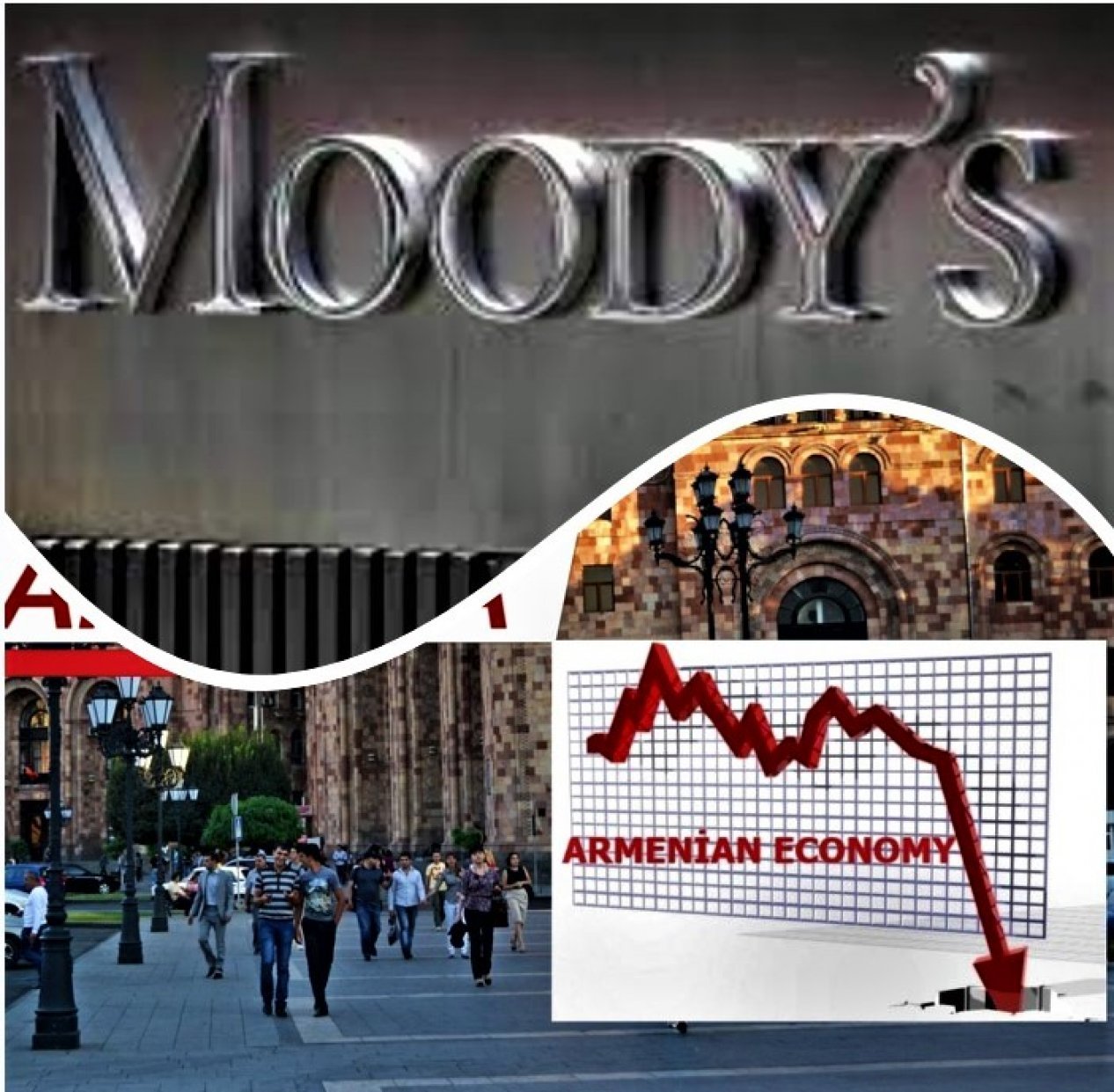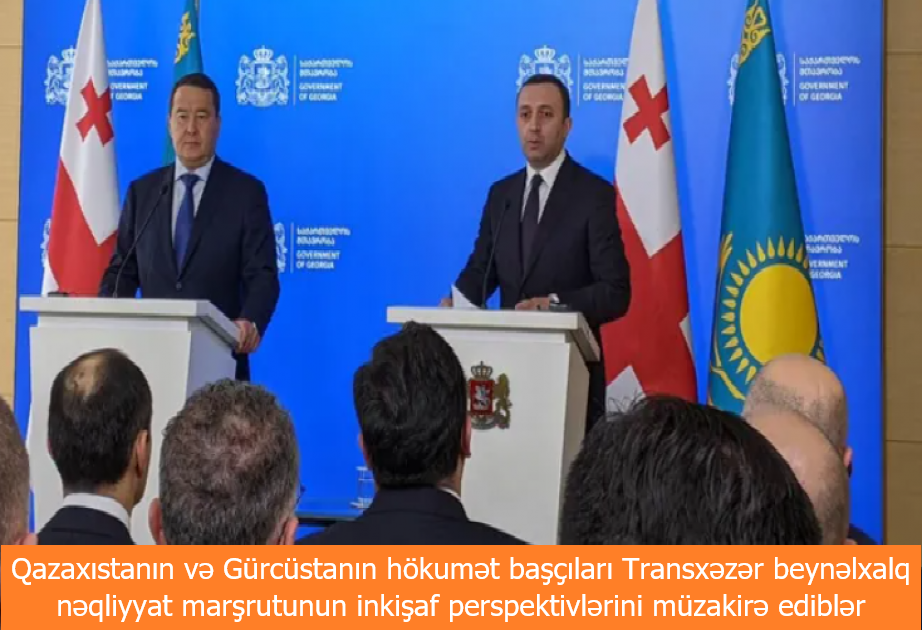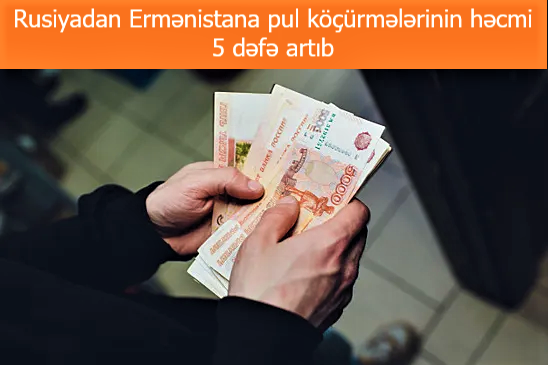
Moody's international rating agency announced the factors that put Armenia's economic stability at risk. The institution's forecast-report on the financial and credit situation of Armenia states that the failure to sign a peace agreement with Azerbaijan and the tensions that may arise in the region may lead to the collapse of the country's economic pillars and the deterioration of its fiscal indicators. A stable and steady economy of Yerevan is possible if peace and stability are fully established in the region. Moody's
Moody's states that several geopolitical factors threaten Armenia's economy. These include disruptions in the logistics chain that occurred as a result of the Russia-Ukraine war, imbalances in the current state of trade operations, as well as an increase in geo-economic risks for Armenia as a result of tensions with Azerbaijan in the last year. Moody’s: "It coincided with an increase in the frequency and intensity of military clashes between Armenia and Azerbaijan over the disputed regions. These skirmishes resulted in heavy clashes between the two countries in the second half of 2022. The frequency and intensity of military tensions remain high. If the geopolitical tension turns into large-scale military operations, it can spill over into Armenia's internal politics and aggravate the country's economic and fiscal prospects."

The regional political-military stability, which is put forward as the first risk factor, is indeed the most convincing argument that will derail Armenia's economic plans. First of all, the violation of the fragile peace in the region by Yerevan may directly lead to the derailment of political stability and, subsequently, economic stability. Thus, in the background of tensions and conflicts, the emergence of both physical and psychological stagnation in the economic projects of the state and private sector, interruption of capital and investments of businesses in the background of uncertainties, violation of fiscal obligations, etc. factors lead to economic risks.
What is the way out?
First, instead of giving up on the peace platform created by Azerbaijan, Armenia should adapt to the new geo-economic order sooner and without delay. For this, Armenia should, first of all, unconditionally accept the unchangeable and uncorrectable peace agreement package that Baku has put on the table.
Secondly, Armenia gets a guarantee for the future of its regional economic policy. By connecting this country to communications, Azerbaijan opens a page for its future prosperity. By joining the projects implemented under the initiative of Azerbaijan, which is the dominant economic power center and locomotive of the South Caucasus, it gets out of the economic deadlock and gains access to East-West communications. With the help of the Azerbaijan-Türkiye union, which is the emerging economic power block of the region, it gets access to Central Asia and, at the same time, transits to the Balkans and the West.
Thirdly, it earns transit fees and other dividends from the Zangazur corridor, which will become an international trans-communication, and thanks to Azerbaijan and Türkiye, collects significant foreign currency from international shipments to the country's national income portfolio.
Fourthly, the door of Armenia's business community, small and medium trade network opens to Türkiye for free trade operations, and trade competition in the country gets revived.
With this, intense tensions in the region, which Moody's considers to be one of the main risk factors, disappear once and for all.
All this is a solution that is available for Armenia and can become a reality in a short time. There is a good example. Neighboring Georgia was able to create long-term stable and reliable support for itself precisely on the Azerbaijan-Türkiye economic vector. Except for the tourism sector, energy, transport, infrastructure, logistics, fuel, industrial processing, etc. fields of Georgia are derived from the economic resources of the two fraternal countries.

Georgia is already finding its place in the changing geopolitical logistics geography by joining the trans-communication programs of the family of Turkic states, using smart and pragmatic economic forecasting. Georgia is active in the TransCaspian project, which is currently on the agenda, and takes its place in the joint project of the Turkic states. The new economic and communication plans were discussed in the meeting of the Prime Minister of Kazakhstan Alikhan Smailov with the Prime Minister of Georgia Irakli Garibashvili, who went to Tbilisi after conducting consultations on the Middle Corridor during his visit to Baku a few days ago. Garibashvili declared his country's intention to join the TransCaspian route, which stands out as one of the most profitable transport corridors between Europe and Asia. Tbilisi is well aware that this route will be the busiest and most promising transport artery that will provide access to the Middle Corridor of the New Silk Road and cannot be left behind. reference
Therefore, Armenia should assess the situation pragmatically.
President of Azerbaijan Ilham Aliyev has repeatedly stated that the sustainable and stable development of Armenia depends on its behavior as a fair and normal neighbor in the region. At the World Economic Forum (Davos Forum) held in Baku a few months ago, Mr. President said on the topic "Strategic dialogue on the future of the South Caucasus and Central Asia" that now new realities and modern challenges have given us a historic chance to evaluate new opportunities. All countries and peoples in this region should step together for a better future and prosperity. Quote: "The Caspian region, Central Asia and Azerbaijan in this region, we see our future in close relations and cooperation, in the integration and unification of our efforts to ensure a better life for our peoples, a better future for our countries." source

The logic is the same, the President of Azerbaijan conveyed the ideas in accordance with the spirit of the messages addressed to Armenia by international organizations.
The head of the World Economic Forum is in complete solidarity with the President of Azerbaijan on this issue, and he is urging Yerevan to use the newly started process and rare opportunities, and not to leave them behind. Klaus Schwab, executive director of the World Economic Forum, believes that all countries of the South Caucasus should decide to walk together on the road to future economic stability and prosperity. The long-term future of this region is also related to its integration into Central Asia. Quote: "Certain scenarios are presented for the South Caucasus and Central Asia regions. Different scenarios are created for the long-term future of the region. The aim is to explore the rare evolutionary potentials of the region and to consider different alternative scenarios. Today we start this process. The goal is to discover the rare opportunities of the region." source
Thus, the recommendation of the President of Azerbaijan, the leadership of the World Economic Forum, the international agency Moody's, as well as other influential institutions, is that if you want to build a stable and reliable life, a normal economy, join the South Caucasus-Central Asia map, by aggravating the situation don't question the fate of the country, if you don't want to experience financial crises, make a wise decision.
The fiscal threat that Moody's considers to be a risk factor related to the Russia-Ukraine war is one of the factors that keep Armenia under constant persecution and pressure. When we say fiscal threat, it goes without saying that Armenia's sources of national income are few and the volume of borrowing is high.
It is known that Armenia is not in a hurry to join the integration network of other regional countries, being more confident in the financial flows coming from Russia, as well as in the commercial and economic prospects with Iran. For example, in the first quarter of 2023, the volume of money transfers from Russia to Armenia increased 5 times and amounted to $1.2 billion. reference

However, the reality is that these financial transfers are both temporary and the situation in Russia's foreign exchange sector will also stop foreign currency outflows due to the shortage of dollars. Because currently, the economic situation in Russia is deteriorating. GDP has been falling every month since January. reference
The situation in the financial sector again entered a dangerous phase after May. The Russian ruble has lost its value sharply against the US dollar, one dollar is exchanged at a margin higher than 90 rubles. The exchange rate at Raiffeisenbank was 97.55 rubles per dollar and 106.4 rubles per euro, and at VTB Bank, it was 94.5 rubles and 102.5 rubles, respectively. Gazprombank bought and sold dollars and euros for 97.3 and 104.3 rubles, respectively. Exchange rates at Alfa-Bank were 96.77 and 106.21 rubles, at MTS-Bank - 95.65 and 104.1 rubles. source

In addition to Russia, the economic situation in Iran is also deteriorating, and in 2023, remittances and investments abroad from this country are predicted to drop sharply. The economic situation in Iran has deteriorated sharply since January 2023, the national currency has fallen to 447,000 rials per dollar, which is considered the lowest value of the national currency in the history of Iran. source
The economic crisis in Russia and Iran will also reduce financial investments in Armenia, and in 2023, in the context of a decrease in remittances and investments, Armenia will again take additional debt. In the economic review of the Eurasian Development Bank for 2023, it has been stated that money transfers and investments from Russia and Iran to Armenia will decrease, and the GDP growth rate will decrease from 7% in 2022 to 4.2%. source
In this regard, the expectations of Moody's regarding the worsening economic and fiscal prospects of Armenia also reflect a realistic analytical view.
When all the risk factors emphasized by Moody's rating agency are compiled, the following conclusion is reached:
* In order to ensure its economic salvation, Armenia should join the Azerbaijan-Türkiye union, which is the economic power block of the region.
* Regardless of how much Yerevan makes a fuss, the keys to communications are still in the hands of the Turkic states.
* The pillars on which Armenia will achieve sustainable development are Azerbaijan, Turkey and the family of Turkic states, which have a worthy place in the geo-economic landscape of both brother countries.
* The opening of the Zangazur Corridor can bring messages of opportunity and development for Armenia's economy.
* By joining regional projects with Azerbaijan and Türkiye, Armenia's economic security can be guaranteed.
Thus, the forecasts and recommendations of Moody's international rating agency regarding Armenia can be considered a signal to the government in Yerevan to think about its future economic destiny and make a smart decision.




















